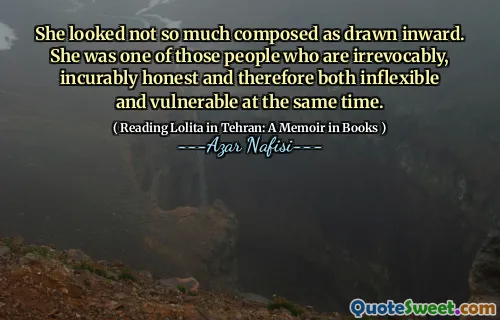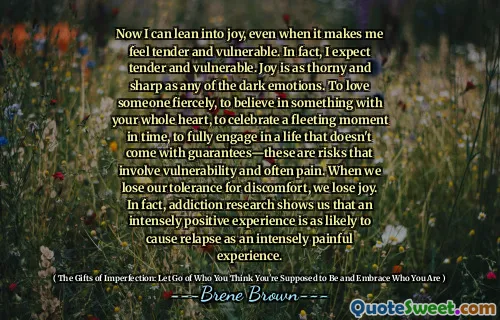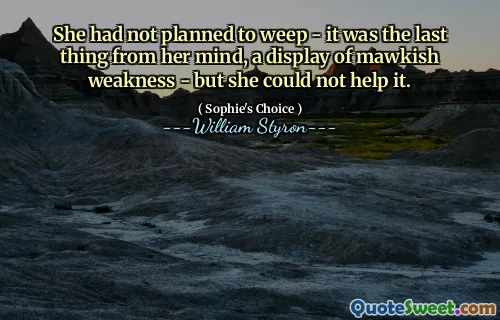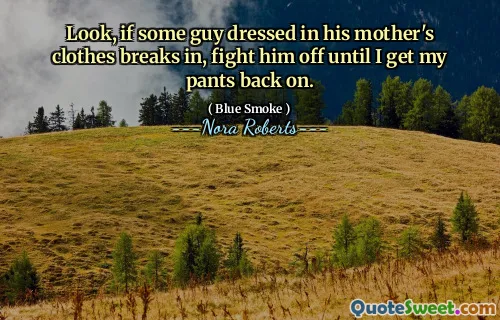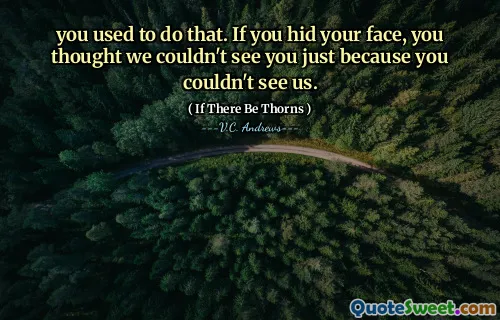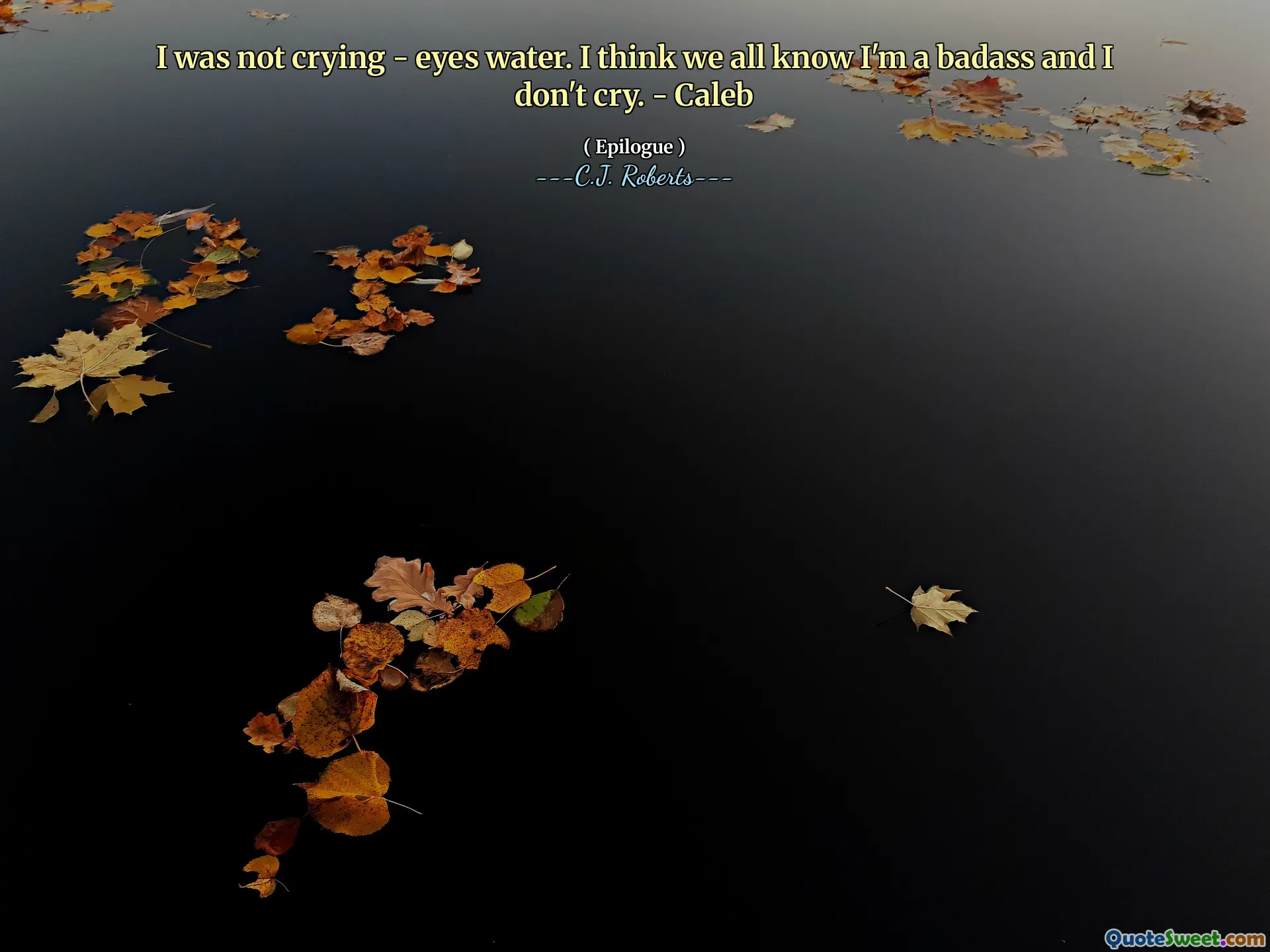
I was not crying - eyes water. I think we all know I'm a badass and I don't cry. - Caleb
This quote from Caleb, found in the epilogue of ---C.J. Roberts---' work, presents a compelling exploration of emotional expression mixed with personal identity and societal expectations of toughness. Caleb’s declaration, "I was not crying - eyes water," is a poignant example of how individuals might negate vulnerability in an attempt to maintain a certain self-image or respect from others. Here, the acknowledgment of watery eyes is immediately countered by a denial of crying, highlighting a common psychological defense mechanism where one distances oneself from perceived weakness.
What stands out in this quote is the interplay between cultural norms around masculinity and the personal struggles with emotions. Caleb’s assertion, "I think we all know I'm a badass and I don't cry," underscores an internal and external pressure to embody strength and resilience in the face of pain. This reflects a broader social narrative that often stigmatizes emotional openness, especially in men, equating tears with a loss of strength or control.
However, this stance also invites reflection on the human condition — that strength and vulnerability are not mutually exclusive but rather deeply intertwined. Caleb’s words suggest a conflict: a desire to appear unbreakable while naturally experiencing the full range of human emotions. It challenges readers to consider how societal labels like "badass" might obscure deeper truths and highlight the importance of compassion towards oneself when facing emotional hardship. Such a moment from an epilogue can serve as a powerful reminder to re-evaluate how we conceive bravery—not as the absence of tearful moments but as the courage to acknowledge and embrace them quietly or boldly.

